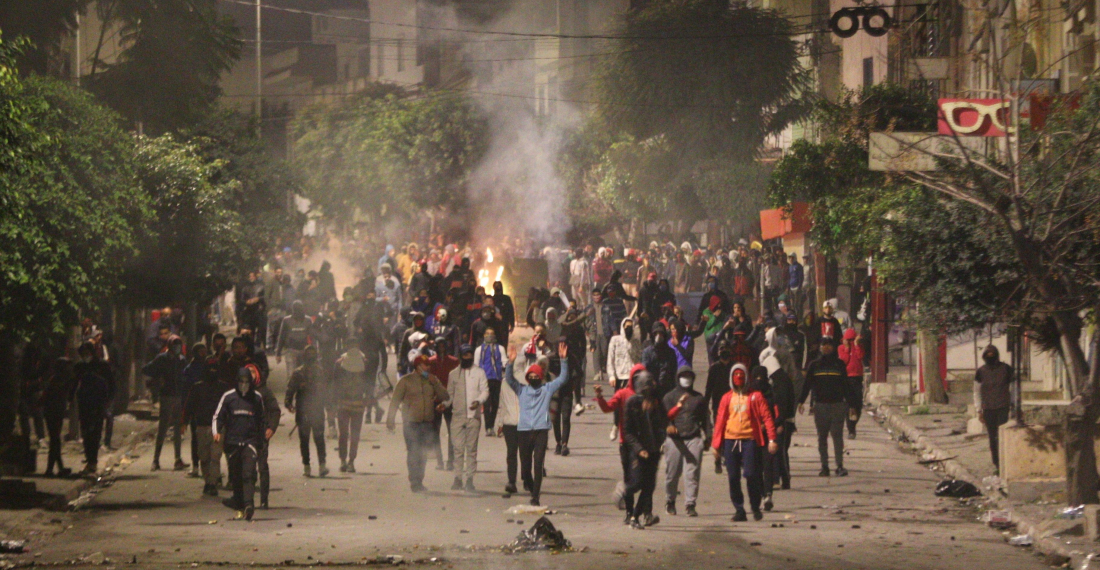Tunisia's capital, Tunis, witnessed a fourth straight night of street protests, in what doesn't seem to be a short-lived moment of unrest. Youth, in mostly working-class neighbourhoods, clashed with riot police as protestors took to the streets in about 15 locations. There are calls for further protests on social media as more than than 600 had been arrested.
The protests come at a time of an economic crisis, which was exacerbated by the pandemic. Tunisia relies heavily on tourism as a source of income. Several media outlets have, in recent months, highlighted the economic plight of young Tunisians, many of who have insufficient wages due to inflation, while others are facing unemployment. It is estimated that a third of Tunisia youth are unemployed.
Not everyone, however, seems to approve of the protests with several shop owners worrying about looting and damage to public property. On Monday, President Kais Saied called for calm and asked young people to refrain from targeting people or property as he met with residents of Ettadhamen neighbourhood on the outskirts of Tunis.
"Through you, I want to speak to all the Tunisian people, I know the state of poverty and I also know who is exploiting your poverty. Don't let anyone exploit your misery, don't attack private or public property. We live today because of moral values and not because of theft or looting", Saied said.
The protests come right after the 10th anniversary of the 2010 demonstrations that led to the exile of the of former president Zine El Abidine Ben Ali. No political party has yet called for support for the protests but several civil society organisations came in support of the youth. The demonstrators themselves mainly called for economic rights rather than political or social rights.
Source: commonspace.eu with agencies
Picture: Demonstrators in one of Tunis' neighbourhoods. (Twitter: @AlarabyTV).






